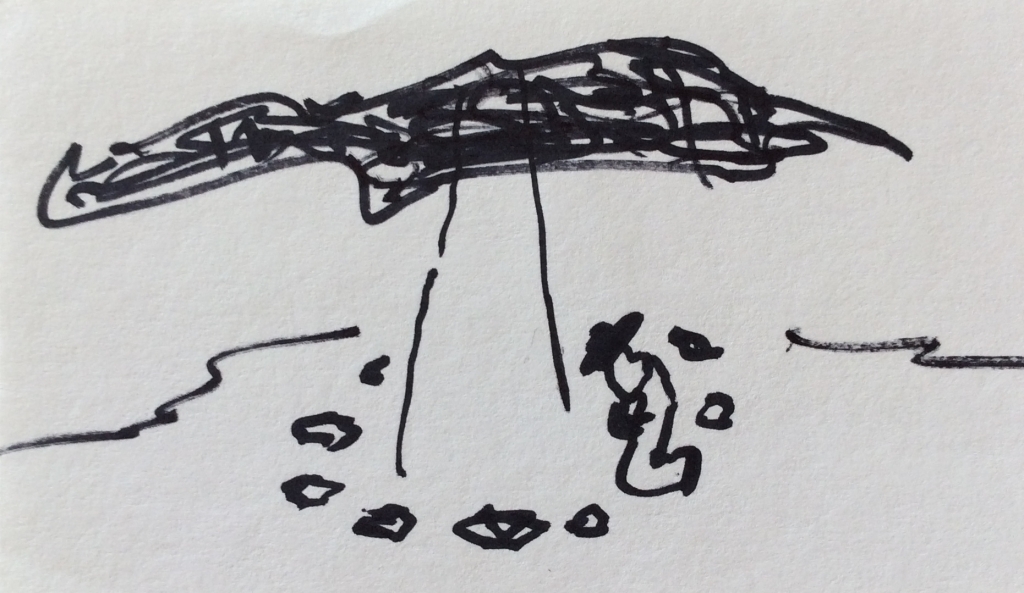
In role-playing games, players take on one character, designated as “their character.”*
The GM then gives information about the situation that the character and other characters are in, finishing with the question “what do you do?”
This invites discussion, questions, and finally, a choice. But it’s more specific than that, it invites an action. See, players can ask all the questions they want, digging for more information, but eventually it comes down to an action. The game almost stops moving until the players declare the thing they want to do.
The game stops moving when players make a habit of offering hypothetical actions instead of specifics:
- What if I pushed him around a bit to scare the guard? Would that work?
- Is there a way I could find a librarian in the city who might be more knowledgeable about this?
- Can I use this crowbar to help open the door?
To every single one of these responses I say (and have said) as directly as possible “what do you do?” If they’re still confused, I’ll clarify the situation and ask again. This leads to responses like:
- I push the guard around to intimidate him. “Let us through, small fry.”
- I check around the city for a knowledge center, preferably a library.
- I use the crowbar to try and pry the door open.
After a few repetitions of meeting hypotheticals with “what do you do?” players will get it (hopefully).
What’s the purpose? Once again, to keep the focus on the world. Actions are interactions with the physical, social, and magical world. They’re declare in reaction to the world and then gives something to react to.
Because nothing is more awkward for a guard than hearing about how they’re going to be pushed around instead of actually being pushed around.
Fiction first
This is why Powered by the Apocalypse (and Blades in the Dark) folks are always talking about fiction first, mechanics second. You do something, which might trigger a roll, likely not.
Let me give a counterexample from running a game for younger players. One hardcore D&D 5th edition player was in conversation with a goblin who accidentally showed the player he was carrying a magic potion. “What’s this game’s equivalent of an Insight check? I want to see what kind of potion he’s hiding.” (My anti-knowledge and perceptions roll sentiments came back in a big way). “The label was faced away from you, so that would be like trying to see through a wall. What do you do?” That set him back in the world. “I say “Show me the potion. Then we can talk details about this protection job you want us for.””
Now the goblin can react! If the player character had gone “Superman X-ray Insight mode” the goblin would just be sitting there, wondering what just happened. Will the goblin show him the potion? Will he demand proof he can trust him? Will he run away? On the other side, the player had multiple options for how to get what he wanted. He demand that the goblin show him, but he could’ve attempted a sneaky snatch or waited to find out later from another information source or said something completely different. His action made all the difference for the direction and flow of play.
Semantically, this demonstrates why “action” is more potent than “choice.” Using the Insight skill mechanic is technically making a choice, just like trading brick for wheat in Settlers of Catan. This is same as saying “I make a melee attack roll against the troll” instead of saying “I strike the troll” The first demands a mechanical interaction (roll the d20, add the modifier), whereas the second demands an interaction with the world (you might still roll dice here, but what if the troll was asleep? Or unarmed? Or dazed? Or unconscious?).
A choice can slip into a mechanical interaction. “I choose the “Spellslinger feat. I choose to expend this spell slot. I choose to move 30 feet.” An action, being something your character does, is immune to such a slope. “I train with the spellslinger guild. I cast the spell “Prismatic Spree.” I run as fast as I can towards the exit.”
So when the game is stalled, when players offer hypotheticals or just keep talking about things the group could do instead of what they actually do, reiterate if necessary and then turn to one player: “what do you do?”
Get away from the characters sheets, the dice, and for heaven’s sake leave the rulebook alone unless the game cannot function without it. Get back to the basics. “Where does this take place? What’s going on? What’s next? What will happen?”
Play to find out.
*There are exceptions, like open strategy games that allow players to take on a more omniscient role, like that of a faction or group. Even in these games, players declare actions, though they might be abstracted for brevity’s sake. “My keep rallies its forces” vs. “I tell Commanders X, Y, and Z to gather their troops and make their way to the wall with each soldier standing at their post with their spears and shields and are well-hydrated and have sunblock on and…”
This might be obvious, but we should keep in mind too that sometimes players (rightly) ask “what would happen if I…” questions because they (the players, not the characters) don’t have adequate information about the situation the GM is describing. There’s a crucial difference between a player dithering between possible actions, and looking for more data about what the characters would see/hear/sense directly. This doesn’t counter your good points at all, but it is a reminder that sometimes pushing hard for action without further information has its own pitfalls, too.
Good post! Thought-provoking. Familiar concepts from Dungeon World/PbtA games, but I think we can always use this reminder.